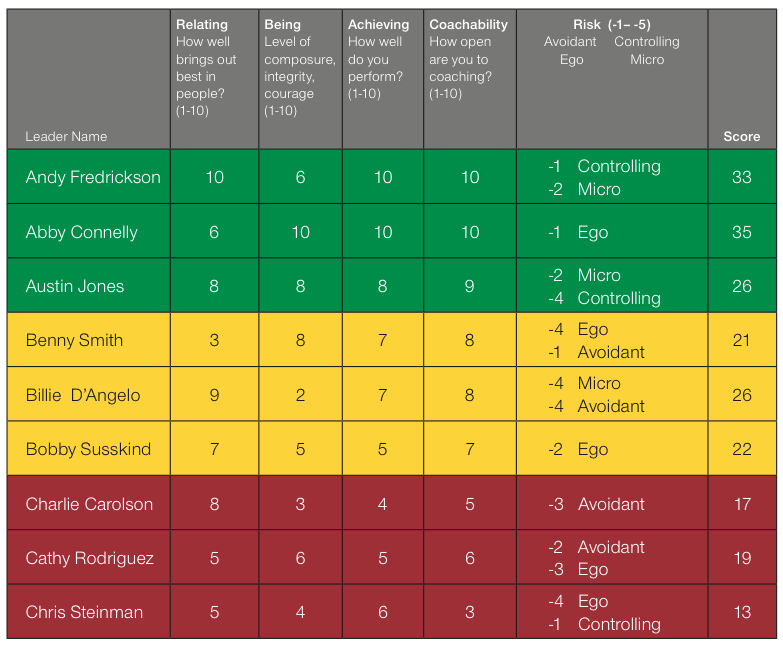Submitted by Sal Silvester on October 10, 2016

If there’s one leadership skillset that differentiates good from great organizations, it’s the ability for your managers to be coaches. That’s precisely what today’s post is about. But to get there, managers have to recognize some of the common and costly challenges that often slow them down or stop them from coaching others.
Challenge #1: Problem solving is a problem. Managers are often great problem solvers, but the problem with problem solvers is that they don’t address issues until a problem rises to a certain level and grabs their attention. Coaching is less about problem solving and more about ongoing dialogue that helps people be successful before problems arise. So when leaders don’t address issues until they become problems, they miss out on great coaching opportunities.
Submitted by Sal Silvester on April 7, 2016

Leaders get what they expect, and they get what they tolerate.
What are you tolerating? What are the low expectations that you are “putting up with” that shouldn’t be happening?
Maybe you’re telling yourself a story that allows you to tolerate unacceptable behaviors. “Well, I don’t have the skillset on my team to backfill for this person?” Or, “I need to choose my battles.” Or “It’s no big deal.” Or, “I’ll burn the relationship if I give her feedback.” How about this one - “I can’t hold her accountable for (fill in the blank) because she’s a good producer.”
Submitted by Sal Silvester on May 30, 2015
There are basically two different types of team-building programs – those designed to reward & those designed to fix organizational problems.
Submitted by Sal Silvester on January 31, 2015

Audrey works as a software engineer in a fast growing technology company in Denver. She’s young, smart, and a rising star on her team. She’s got a great attitude that is equally matched with performance. You might call her a “high potential” team member or even an “A” player.
Submitted by Sal Silvester on January 11, 2015
 Do you want to make your coaching efforts more effective? If so, you'll need to be able to measurably assess your people.
Do you want to make your coaching efforts more effective? If so, you'll need to be able to measurably assess your people.
Submitted by Sal Silvester on December 19, 2014
As we wind down the year and look toward the next, there isn't a better time to step up and engage more effectively with your people. One the simplest and most overlooked tools that leaders have to enhance their coaching is the 1-1 Coaching Session.
Submitted by Sal Silvester on May 14, 2013
Have you ever wondered why your leadership team struggles so much? Why there is unexplained tension and unspoken expectations?
Leadership Teams are straddled with unique challenges that other teams don't normally face. For example, most members of a Leadership Team often "own" a function of the organization (e.g., Marketing, Engineering, Sales), are rewarded based on the success of that function, and then asked to be part of a team of peers who battle for the same set of resources.
Submitted by Sal Silvester on June 15, 2011
Having successful relationships in the workplace requires only three simple things:
- people who think exactly like you do.
- people who have the same exact needs as you.
- people who have a perfect history with you.
If you DON'T have these three things, then I'd consider you normal. And, if you do have these three things, they're likely to be accompanied by their three cousins - groupthink, mediocrity, and stagnation.
Submitted by Sal Silvester on May 23, 2011
As heard in one of my team coaching sessions last week from a participant...
"If two people agree, you don't need one of the opinions."